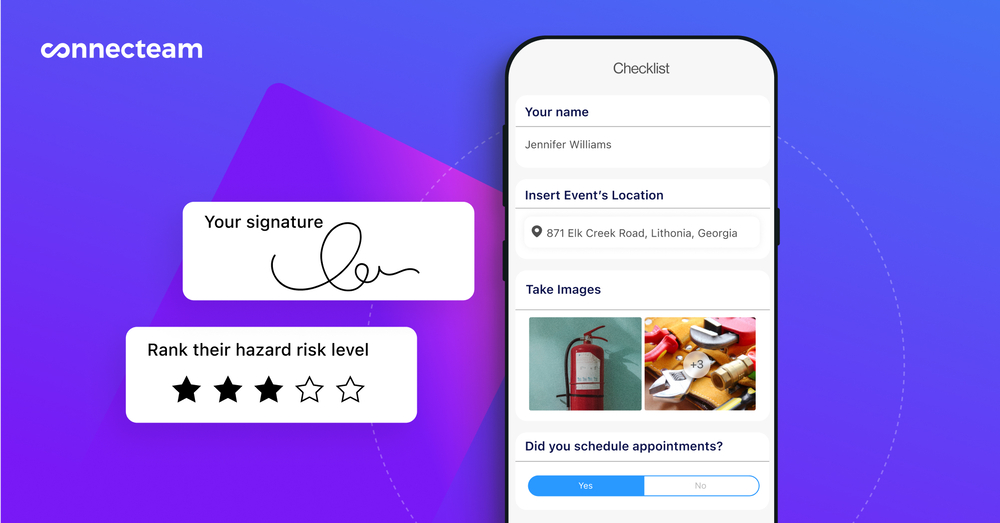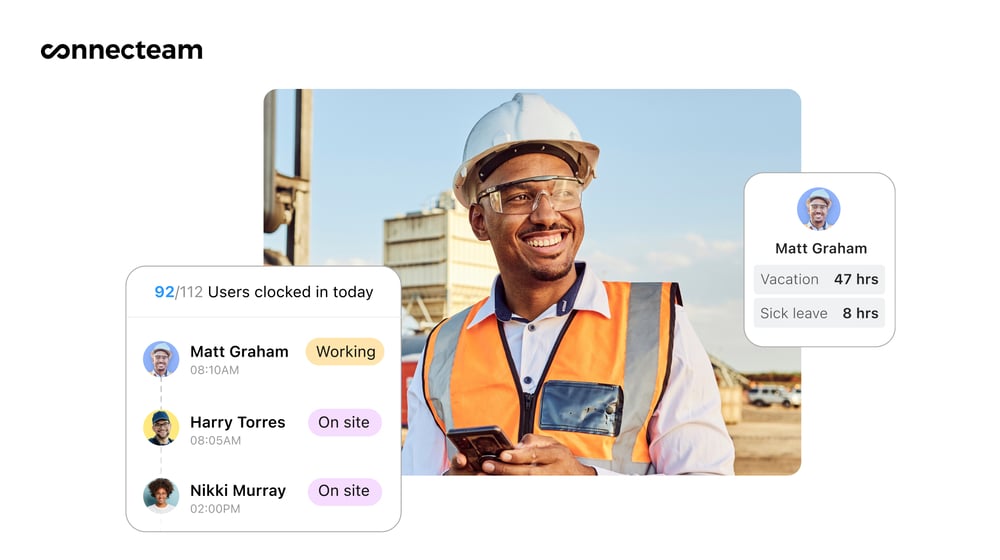Construction management is a well-paying, in-demand profession. This 8-step guide walks you through a construction manager’s responsibilities, construction manager requirements, and ways to land a construction manager job.
Construction management is a growing field that can pay well and doesn’t leave you stuck behind a desk all day, every day. This exciting career lets you use your analytical abilities, people skills, and leadership expertise.
Whether you’ve just discovered this career path or wanted to pursue it for years, you might be wondering how to become a construction manager. We’re here to break everything down for you.
In this guide, we explore the role of a construction manager, the skills required to succeed at the job, and the 8-step process to break into the industry. Let’s jump in!
Key Takeaways
- A construction manager leads and executes construction projects. The role combines budgeting, scheduling, people leadership, risk management, quality control, safety, and more.
- Key skills required for the job include communication skills, project management and organizational skills, technical and industry knowledge, leadership experience, and analytical abilities.
- To become a construction manager, seek any necessary education, certification, and licensure. Then, gain hands-on experience and hone your skills.
- You should also build a network, create a resume, and find and apply for construction management roles.
What Does a Construction Manager Do?
A construction manager coordinates construction projects. They often work on homes, office buildings, or other structures in the building sector. However, they can also work in other sectors—like infrastructure, industrial construction, environmental projects, or event construction.
One of the biggest parts of a construction manager’s job is coordinating construction projects: executing a project plan, meeting timelines and deliverables, adhering to budgets, and managing resources. They also negotiate and manage contracts for each project.
While a construction manager is involved in project management, they sometimes report to a construction project manager. Construction project managers oversee the entirety of the project, including setting a project plan, managing design, and handling procurement, marketing, and more.
Scheduling and budgeting are other major aspects of the construction manager role. A construction manager must oversee the building project budget, keep costs down, and use resources effectively. They must also follow the project schedule to keep deadlines and deliverables on track.

Risk management is another significant part of a construction manager’s job—they must uncover and address risks before those risks derail a project. Similarly, they follow permitting and regulatory requirements.
While juggling these responsibilities, construction managers must implement and enforce safety protocols and oversee quality control. This keeps workers safe and ensures projects are compliant with building codes. They often visit construction sites to do this.
Finally, this is a management position: Construction managers oversee a team of construction workers, contractors, subcontractors, architects, engineers, and anyone else involved in the construction process.
Why Become a Construction Manager?
You should be excited about a career in construction management for various reasons. For starters, the career offers variety and doesn’t keep you tied to a desk all day. Plus, the work is fast-paced and lets you use many skills at once.
Additionally, construction management is a well-paying career. The US Bureau of Labor Statistics (BLS) shows that in 2022, construction managers earned a median income of $101,480/year or $48.79/hour.
It’s also a growing field. The BLS projects that the number of construction manager jobs will increase 5% between 2022 and 2032. For other jobs, the average growth rate was just 3%. The BLS anticipates that by 2032, the US will have 22,900 additional construction manager jobs.
What Skills Do Construction Managers Need?
The next step in discovering how to be a construction manager is learning the top skills required to succeed.
Communication skills
Construction managers must communicate effectively with various groups, including stakeholders, clients, direct reports, regulatory authorities, and crew members. Excellent communication skills are a necessity.
🧠 Did You Know?
Connecteam can help improve your team’s communication on and off the job site. Discover 9 helpful tips to bolster your team’s connectivity and communication.
Project management and organizational abilities
Succeeding as a construction manager means keeping a project moving in the right direction, coordinating a team, and ensuring compliance with budgets, timelines, and more. Being organized and detail-oriented is imperative.
Technical knowledge
Successful construction managers must have industry knowledge—including construction and building best practices, codes and regulations, and standards and requirements. This enables them to evaluate projects and work, address technical challenges, and ensure adherence to safety standards.
Strong decision-making and leadership
A construction manager must be able to make quick decisions to solve problems at job sites. They must work well under pressure, trust their own judgment and decision-making, and keep their team motivated and positive.
Analytical skills
Construction managers oversee budgets, schedule projects, adhere to deadlines, engage in planning, and create cost estimates. Strong analytical expertise enables them to examine financial and budget data closely, carefully plan projects while considering worker and vendor availability, and make strategic decisions that mitigate risks, optimize resources, and ensure client satisfaction.
How Do You Become a Construction Manager? Construction Manager Requirements and Tips
Follow these 8 steps to become a construction manager.
Step 1: Obtain relevant education, certifications, and licenses
Education, certification, and licensing requirements vary across the US and construction firms.
College degrees
A good education can be the foundation of a career in construction management. Many construction firms require construction managers to have a bachelor’s degree in construction management, general construction, engineering, business, or other related fields.
These degree programs typically cover project management, construction methods, design, materials, and more. Business, communications, and math courses are also useful.
Although many jobs require a bachelor’s degree, for some smaller companies or lower-level roles, a relevant associate degree plus some relevant work experience can suffice.
🧠 Did You Know?
Seventy-six schools in the US offer degrees in construction management. Check out their information and rankings at Authority.org.
Extensive work experience—i.e., many years’ experience in the construction industry—might enable you to become a construction manager without formal education. However, some construction firms won’t employ you as a construction manager if you don’t have a degree.
Certifications
Certifications can bolster your expertise throughout your career, and some firms require certification. Becoming a certified construction manager through the Construction Management Association of America (CMAA) can make you a more competitive candidate. It can also equip you with knowledge of the industry, current trends and technologies, laws and regulations, green building practices, and more.
📚 This Might Interest You:
Explore our list of 9 construction certifications that can help advance your career.
Licenses
Finally, some states require licensure. The type of license needed varies by state and sector, so contact your local state licensing board—or seek advice from one of the industry organizations we share below in Step 4.
Step 2: Gain industry experience
Hands-on experience in the field can help you become a construction manager. Gain experience through entry-level jobs, internships, or apprenticeships.
Many entry-level positions can teach you how to be a construction manager, typically through mentorship by someone more experienced in the field.
Other relevant jobs can make you a more competitive construction manager, even if they’re not construction management positions. For example, working as a contractor, carpenter, or other type of construction worker can prepare you for this role.
Step 3: Hone your skills
A strong skill set can keep you employable even as the economy shifts. You can develop your skills through various means, including on-the-job training, internships, side projects, certifications, and continuing education.
For example, you can stay on top of industry trends by reading industry publications, following relevant blogs and news sources, and checking governmental regulations.
You should also remain well-versed in the tools of the trade, including top construction project management software, cost management software, and safety management systems.
📚 This Might Interest You:
For information on courses you can complete, read our guide on 10 great construction training courses.
Step 4: Develop your network
Put the finishing touches on your construction management career by creating a network of other professionals. This will make it easier to find jobs through connections while giving you people to learn from.
Consider joining associations and groups, such as:
- CMAA
- Associated General Contractors of America
- American Institute of Constructors
- Design-Build Institute of America
- National Institute of Building Sciences
You can do this step at any time in the process. Even when you’re just starting to consider construction management as a career, consider contacting folks in the industry to ask them, “How did you become a construction manager?” Their answers can provide insights into the best ways to approach the career.
Step 5: Create a resume and portfolio
A well-developed resume helps you present your skills and accomplishments to potential employers.
Your resume should include:
- Evidence of your construction work history and accomplishments.
- Any education, certifications, or licenses you carry.
- Relevant professional associations you’ve joined.
- Industry skills, including software systems.
- A link to a portfolio of your construction work, if you have one.
While many construction management jobs won’t require you to share a portfolio, creating one can help you show potential employers you’ve done the work needed to succeed as a construction manager. (This can be especially helpful to applicants without degrees.)
Here’s what a construction portfolio should typically include:
- Past projects.
- Client testimonials.
- Safety and quality records.
Step 6: Find jobs
To find jobs, ask your network to share role openings they come across. Consider contacting your educational institution, which may have a career center or other support.
Use the internet to your advantage and search for job postings on websites like LinkedIn, Indeed, Glassdoor, and SimplyHired. You may have more luck with industry-specific job boards, such as ConstructionJobs.com and Construction Executive Jobs.
Do you already work for a construction employer? Consider asking them to keep you posted on upcoming construction manager openings so you can apply right away.
Step 7: Apply for roles
When you’ve found a job that excites you, tailor your resume to the individual job and clarify why you’re a good fit. Write a strong cover letter that showcases your construction knowledge, project expertise, and understanding of regulations or building codes.
If you already work for a construction employer and know they’re looking for a construction manager or will need one in the future, consider seeking a promotion directly through the company.
Step 8: Nail the assessments
Making it to the next phase of the application process means your potential employer will assess you using interviews, trial periods, or other assessments.
Prepare for interviews with specific examples of successful projects you’ve completed, challenges you’ve overcome, and teams you’ve led. Ask questions of your own, too.
Refreshing your industry knowledge can help you prepare for other assessments. For example, brush up on recent industry trends, construction management best practices, safety protocols, and the latest construction technologies and methods.
How Can Connecteam Help Construction Managers?
Once you’ve landed the job, the work doesn’t end there. Make an impact at your construction management job by implementing Connecteam. Our all-in-one business management platform will help keep your construction team organized and on task. Here’s how.

Connecteam offers employee task tracking so everyone knows what they must do. Set reminders and receive updates as workers complete tasks. Assign tasks to specific employees and include relevant details, documents, and images. This feature lets you ensure projects are completed on time and within budget.
Connecteam’s job scheduling tools also come in handy. Create schedules from scratch or with templates. And if you find yourself scheduling the same thing repeatedly, simply set recurring jobs or create duplicate schedules. Once the schedule is set, distribute it to your team immediately. You can even enable them to swap shifts or find replacements as needed.
Connecteam’s online team chat lets everyone stay in touch, even when working from different job sites. Your team can send instant messages, share files, and ask questions right from their mobile devices. There’s also a social media-like feed that lets you reach everyone right away.
Plus, there are digital forms, including checklists. You can have employees digitally sign these to document your compliance with safety protocols.
Connecteam also doubles as a timesheets app and time tracking clock. The geofence time clock shows you if workers are in the right places at the right time, while timesheets put you in control of labor costs.

Conclusion
A construction management career can be rewarding and lucrative—but it doesn’t happen overnight. To become a construction manager, you need the right education, hands-on experience, industry skills, and a strong network. You must also successfully find and apply for jobs.
Once you’ve got your foot in the door, expand your impact with tools like Connecteam. This all-in-one construction management tool simplifies scheduling, task management, time tracking, and more.
Get started with Connecteam for free today!
FAQs
What degree is best for a construction manager?
A construction management degree covers business, engineering, and architecture to give you everything you need for your career.
What is the highest-paid construction manager job?
Construction management jobs range in pay, especially between entry-level and senior positions. According to the BLS, some of the highest-paying industries for construction managers are natural gas, oil and gas, and metal ore mining. These jobs are less common than standard positions in the building construction sector.

